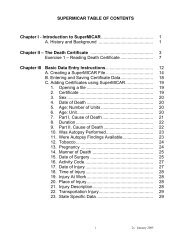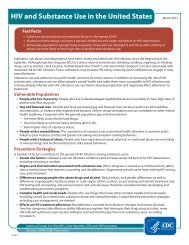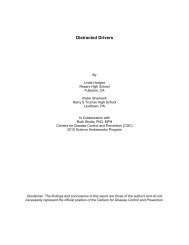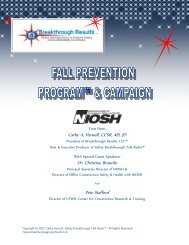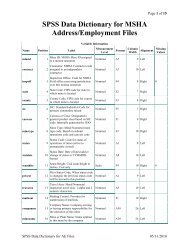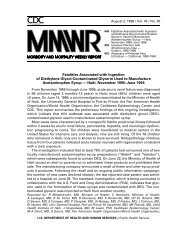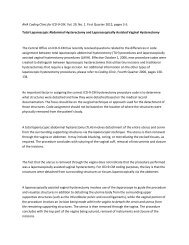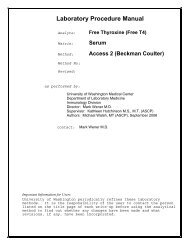Measuring Bullying, Victimization, Perpetration, and Bystander ...
Measuring Bullying, Victimization, Perpetration, and Bystander ...
Measuring Bullying, Victimization, Perpetration, and Bystander ...
You also want an ePaper? Increase the reach of your titles
YUMPU automatically turns print PDFs into web optimized ePapers that Google loves.
46<br />
C3. Child Social Behavior Questionnaire<br />
How often do you think you… Often Sometimes Never<br />
1. Help another child in your class with their work? <br />
2. Work on a computer? <br />
3. Are hit by another child in your class? <br />
4. Hit or kick another child? <br />
5. Play with another child in your class who has nobody to play with? <br />
6. Are left out of a game? <br />
7. Push or trip another child in your class on purpose? <br />
8. Help another child if they’ve fallen over or hurt themselves? <br />
9. Are picked on by another child in your class? <br />
10. Have a school dinner? <br />
11. Let another child in your class play with your game or toy? <br />
12. Join in with a group of children to hurt another child? <br />
13. Are upset because another child keeps being nasty to you? <br />
14. Are nice to another child in your class who is sad or unhappy? <br />
15. Read a comic or magazine? <br />
16. Share crisps or sweets with another child during playtime or dinnertime? <br />
17. Stop another child in your class from joining in a game? <br />
18. Stick up for another child in your class who is in trouble? <br />
19. Spread nasty stories about another child in your class? <br />
20. Break another child’s things because you want to upset them? <br />
21. Play football? <br />
22. Cheer up another child who is crying or upset? <br />
23. Call another child names or make fun of them because you want to upset them? <br />
24. Threaten to hurt another child in your class if they don’t do something? <br />
Copyright © 2003 University of Stratclyde, Glascow, Scotl<strong>and</strong>; Reproduced with permission from Dr. Donald Christie.<br />
NOTE: This scale is the self-report version of the Child Social Behavior Questionnaire. There are also peer-nomination <strong>and</strong> teacher-rating versions of this scale<br />
reported in Warden et al. (2003).






